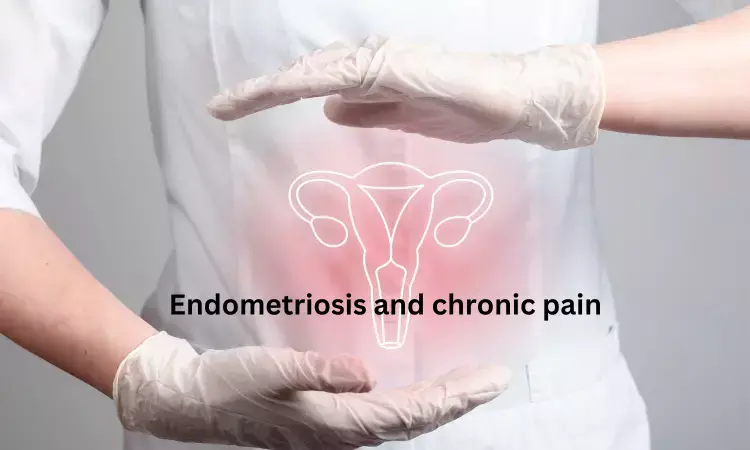- Home
- Medical news & Guidelines
- Anesthesiology
- Cardiology and CTVS
- Critical Care
- Dentistry
- Dermatology
- Diabetes and Endocrinology
- ENT
- Gastroenterology
- Medicine
- Nephrology
- Neurology
- Obstretics-Gynaecology
- Oncology
- Ophthalmology
- Orthopaedics
- Pediatrics-Neonatology
- Psychiatry
- Pulmonology
- Radiology
- Surgery
- Urology
- Laboratory Medicine
- Diet
- Nursing
- Paramedical
- Physiotherapy
- Health news
- Fact Check
- Bone Health Fact Check
- Brain Health Fact Check
- Cancer Related Fact Check
- Child Care Fact Check
- Dental and oral health fact check
- Diabetes and metabolic health fact check
- Diet and Nutrition Fact Check
- Eye and ENT Care Fact Check
- Fitness fact check
- Gut health fact check
- Heart health fact check
- Kidney health fact check
- Medical education fact check
- Men's health fact check
- Respiratory fact check
- Skin and hair care fact check
- Vaccine and Immunization fact check
- Women's health fact check
- AYUSH
- State News
- Andaman and Nicobar Islands
- Andhra Pradesh
- Arunachal Pradesh
- Assam
- Bihar
- Chandigarh
- Chattisgarh
- Dadra and Nagar Haveli
- Daman and Diu
- Delhi
- Goa
- Gujarat
- Haryana
- Himachal Pradesh
- Jammu & Kashmir
- Jharkhand
- Karnataka
- Kerala
- Ladakh
- Lakshadweep
- Madhya Pradesh
- Maharashtra
- Manipur
- Meghalaya
- Mizoram
- Nagaland
- Odisha
- Puducherry
- Punjab
- Rajasthan
- Sikkim
- Tamil Nadu
- Telangana
- Tripura
- Uttar Pradesh
- Uttrakhand
- West Bengal
- Medical Education
- Industry
Food as Medicine: Dietary and Supplement Solutions for Endometriosis Pain, study suggests

Recent study on dietary modifications and supplement use for endometriosis pain aimed to investigate the effectiveness of various strategies in managing symptoms among individuals with endometriosis. The research methodology involved a survey distributed through an online platform, Qualtrics, among 2858 participants, out of which 2599 completed over 80% of the survey questions. The results indicated that the majority of respondents experienced pelvic pain (96.9%) and frequent abdominal bloating (91.2%). It was highlighted that 83.8% of participants had tried one or more diets, while 58.8% had used supplements to alleviate their symptoms. A substantial proportion of individuals reported that these dietary modifications and supplements had a positive impact on their pain levels, with 66.9% attributing pain improvement to diet changes and 43.4% to supplement use.
Pain Improvement and Dietary Modifications
The study found a statistically significant difference in pain scores between participants who reported improvement from dietary modifications compared to those who did not perceive any benefit. Among the popular dietary modifications attempted, reducing alcohol, gluten, dairy, and caffeine were associated with pain improvement for a considerable number of respondents. However, the low-FODMAP diet was less commonly tried despite its potential benefits. Additionally, approximately 32.3% of individuals who used magnesium reported experiencing benefits. The research highlighted the limitations and permissions associated with the distribution of the study findings. The abstract specified that the article is distributed under the CC-BY-NC-ND License, which restricts alterations and commercial uses including text and data mining. Moreover, the introduction discussed the complexities of endometriosis, emphasizing chronic pain as a predominant symptom alongside infertility, fatigue, and gastrointestinal issues. The study aimed to explore the role of the gut microbiome in pain regulation and investigate how dietary modifications could potentially alleviate symptoms in individuals with endometriosis.
Conclusion
In conclusion, this international survey provided insights into the diverse dietary modifications and supplement use practices among individuals with endometriosis. The findings suggested that tailored dietary changes and specific supplements could play a significant role in managing pain associated with endometriosis. The study underscored the importance of individualized approaches in symptom management and highlighted the potential benefits of certain dietary modifications in alleviating pain among individuals with endometriosis.
Key Points
- A study on dietary modifications and supplement use for endometriosis pain involved 2858 participants, revealing that the majority experienced pelvic pain and abdominal bloating.
- 83.8% of participants had tried different diets, while 58.8% used supplements to alleviate symptoms, with 66.9% attributing pain improvement to dietary changes and 43.4% to supplements.
- Dietary modifications such as reducing alcohol, gluten, dairy, and caffeine were linked to pain improvement, while the low-FODMAP diet and magnesium use showed potential benefits.
- The study emphasized the importance of tailored dietary changes and specific supplements in managing pain in individuals with endometriosis.
- The research highlighted the complexities of endometriosis, focusing on chronic pain as a predominant symptom and aiming to explore the role of the gut microbiome in pain regulation through dietary modifications.
- The study's distribution under the CC-BY-NC-ND License restricts alterations and commercial uses, aiming to provide insights into effective strategies for alleviating endometriosis-related pain.
Reference –
Francesca Hearn-Yeates et al. (2025). Dietary Modification And Supplement Use For Endometriosis Pain. *JAMA Network Open*, 8. https://doi.org/10.1001/jamanetworkopen.2025.3152.
Dr Kamal Kant Kohli-MBBS, DTCD- a chest specialist with more than 30 years of practice and a flair for writing clinical articles, Dr Kamal Kant Kohli joined Medical Dialogues as a Chief Editor of Medical News. Besides writing articles, as an editor, he proofreads and verifies all the medical content published on Medical Dialogues including those coming from journals, studies,medical conferences,guidelines etc. Email: drkohli@medicaldialogues.in. Contact no. 011-43720751


